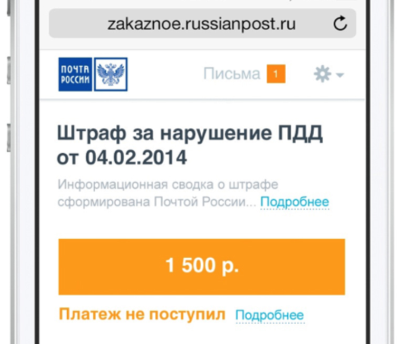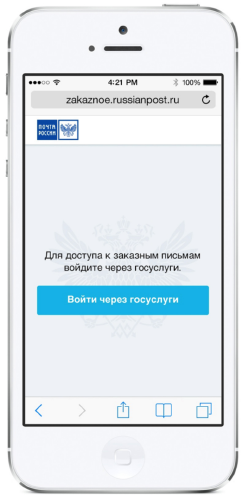Russian Post shared with GeekTimes details about its new service

January 11, I wrote a news about the " official e-mail " - a service that the Russian Post is going to launch. The topic provoked a lively discussion, in the comments there were both questions and expected skepticism. I wrote an e-mail with questions to the press service of the Russian Post, and I finally managed to get answers from them to the geeks who were interested in.
Why is there a need to create a service?
Every year, government agencies send citizens more than 500 million letters, spending on this significant budget funds. However, about 35-40% of registered letters are not taken by recipients from the post offices, one of the main reasons for this is the discrepancy between the place of registration of citizens and the place of their actual residence.
')
Translating registered letters from government agencies in electronic form will allow agencies to reduce the cost of sending notifications, and for citizens to promptly receive registered letters online and pay fines and penalties using a bank card or electronic wallet.
Will the service be required for all citizens?
Use of the service of electronic registered letters for citizens will be voluntary and free of charge. Recipients who are not registered and have not expressed their desire to receive registered letters in electronic form will, as before, receive them in traditional paper form. After connecting the service, users will be able to disable the service and return to the traditional method of receiving registered letters.
Is the interface designed for mobile devices?
Yes, the service interface is designed for use on mobile devices.


Why is the service sold by companies from the USA and the UK?
The development of the electronic registered mail service (electronic mail system) was carried out by the internal division of Russian Post.
Contractors were involved in the development of the service in non-critical from the point of view of security of these elements, the selection of which was carried out in full compliance with the requirements of the procurement legislation. The service of electronic registered letters is certified by the licensee of FSTEC for work with personal data on Security Level 3 (UZ3) in December 2014.
What services are planned to provide, in addition to receiving notices of fines and penalties, and their payment?
Service users will be able to set up convenient ways to notify about receiving new letters (via sms or e-mail), as well as pay for fines and “one-click” penalties directly from the letter. At the same time, Russian Post will monitor payment in the State Information System on State and Municipal Payments (GIS GMP). Thus, the user can be sure that his payment will be timely transferred and credited.
In the future, it is planned to expand the number of types of items by connecting other state bodies to the system.
Where will the system work - on dedicated capacities in a dedicated data center, or from one of the Russian hosting providers?
As part of the pilot operation, the system is located in a separate segment of the data center of the Russian Post.
Source: https://habr.com/ru/post/356418/
All Articles